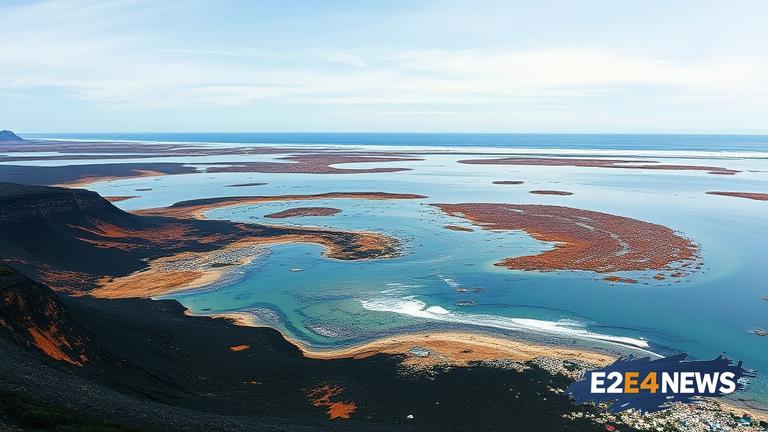A new study has uncovered disturbing levels of pollutants in the Black Sea, a body of water located between Eastern Europe and Western Asia. The research, which was conducted by a team of scientists, revealed that the sea is contaminated with a cocktail of toxic substances, including heavy metals, pesticides, and industrial waste. The findings are alarming, as the Black Sea is a vital source of food and income for millions of people living in the surrounding regions. The study’s results show that the levels of toxins in the sea are far exceeding safe limits, posing a significant threat to marine life and human health. The Black Sea is a unique ecosystem, with a limited exchange of water with the Mediterranean Sea, which makes it particularly vulnerable to pollution. The sea’s pollution problems are exacerbated by the fact that it receives a large amount of wastewater and agricultural runoff from the surrounding countries. The study’s authors warn that the pollution in the Black Sea is not only harming the environment but also having a negative impact on the local economy. The fishing industry, which is a significant contributor to the regional economy, is being severely affected by the pollution. The study’s findings are based on a comprehensive analysis of water and sediment samples collected from various locations in the Black Sea. The results show that the levels of heavy metals, such as lead and mercury, are significantly higher than the safe limits set by international regulations. The study also found high levels of pesticides and industrial waste, including polychlorinated biphenyls (PCBs) and dichlorodiphenyltrichloroethane (DDT). These substances are known to be toxic to humans and wildlife, and can cause a range of health problems, including cancer and neurological damage. The study’s authors are calling for urgent action to be taken to address the pollution problem in the Black Sea. They recommend that the surrounding countries take steps to reduce their wastewater and agricultural runoff, and implement more effective waste management practices. The study’s findings have significant implications for the environment and human health, and highlight the need for greater cooperation and coordination between the surrounding countries to address the pollution problem. The Black Sea is a shared resource, and its pollution is a regional problem that requires a regional solution. The study’s authors hope that their findings will raise awareness about the importance of protecting the Black Sea and its ecosystem. They also hope that their research will contribute to the development of more effective policies and strategies for reducing pollution in the sea. The study’s results are a wake-up call for the international community, and highlight the need for greater action to be taken to protect the world’s oceans and seas from pollution. The pollution of the Black Sea is not only a regional problem but also a global issue, as it can have far-reaching consequences for the environment and human health. The study’s findings are a reminder that the health of the world’s oceans and seas is closely linked to human health and well-being. The Black Sea is a vital component of the global ecosystem, and its pollution can have significant impacts on the environment and human health. The study’s authors are urging governments, businesses, and individuals to take action to reduce their impact on the environment and to protect the Black Sea and its ecosystem. The study’s findings are a call to action, and highlight the need for greater cooperation and coordination to address the pollution problem in the Black Sea.





